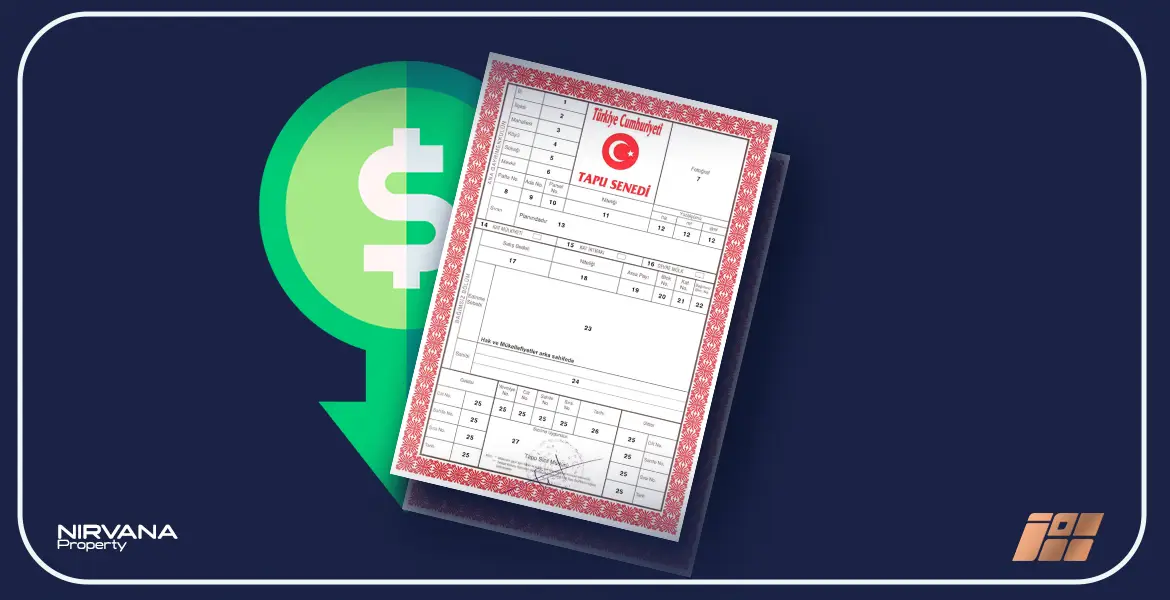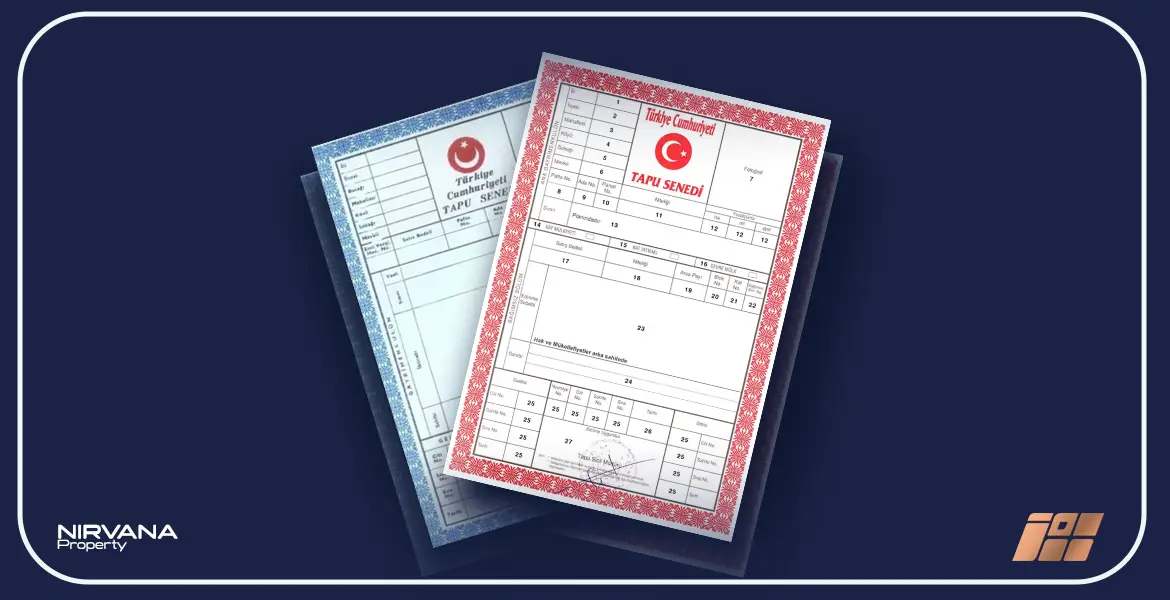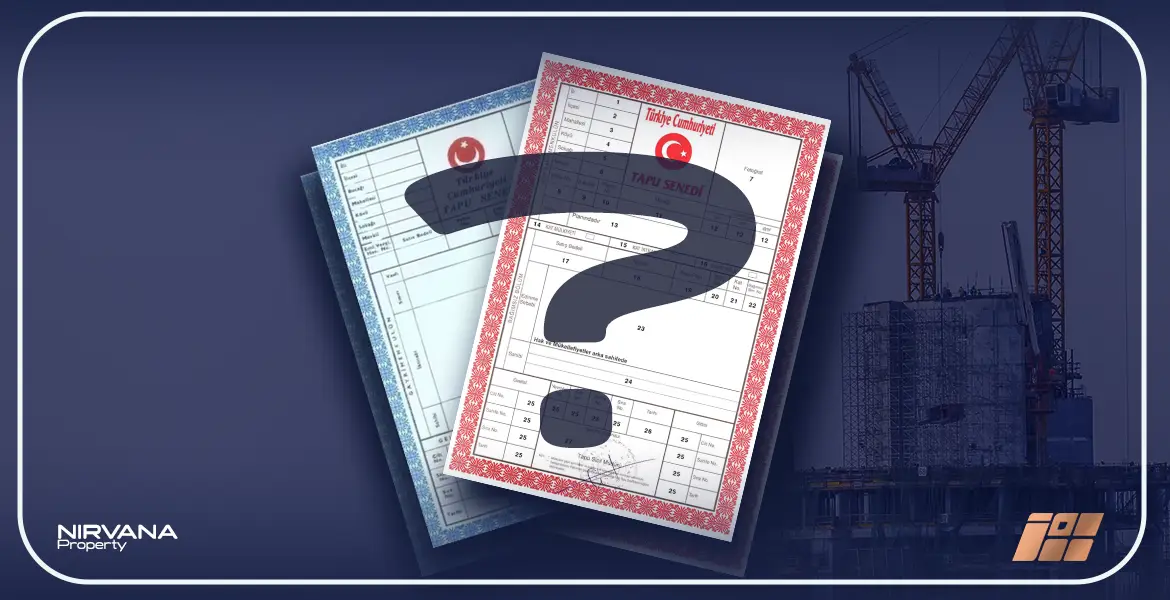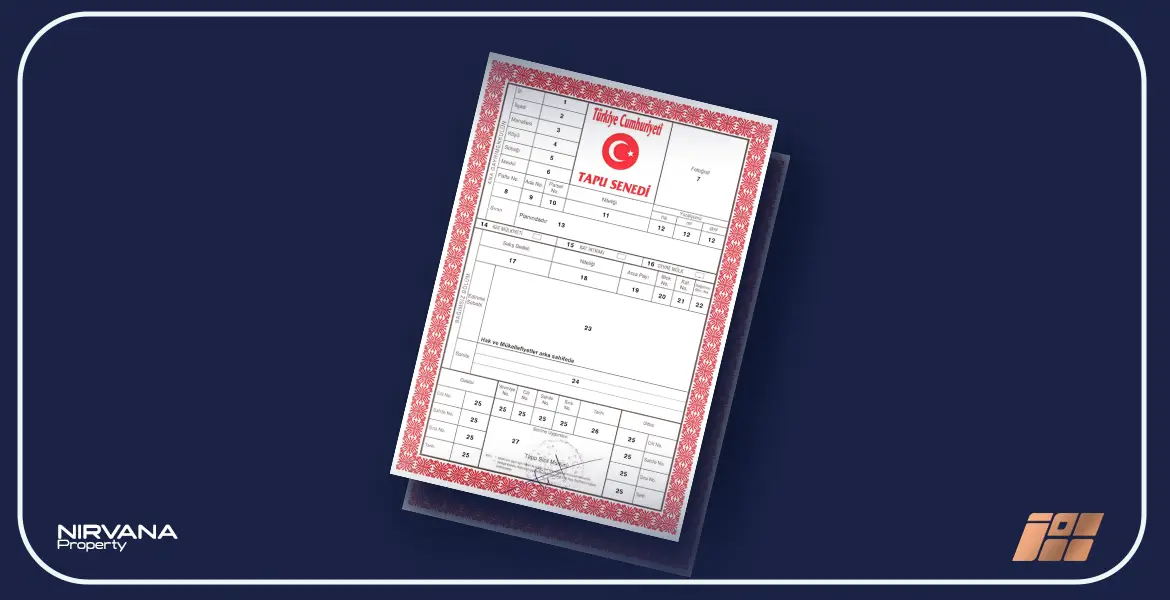Tapu Turkey, A Turkish title deed, known in Turkey as TAPU, is a document that confirms the ownership of a purchased property in Turkey.
It is this document that confirms the transaction, and only after you receive it are you recognized as the full owner of the Turkish property. It is important that buyers understand what is involved in the process of transferring the Turkish title deed – and what pitfalls there are.
It is better to consult a lawyer to help you with all the necessary checks, especially if it is a non-standard purchase: for example if you are buying a Turkish property with the aim of obtaining citizenship.
The title deed shows the ownership of the person named in the deed ( in whole or in part).
If the name of a person is mentioned only in the owner square without mentioning a percentage of 1/3 or 1/5 or other, it means that the property belongs only to the person mentioned in the deed, If the percentage is mentioned, it means that there is a partner and that the person mentioned in the property owns as much as the percentage mentioned in the bond, because the partners in the property are partners in all parts of the property, i.e. the property partner does not have a certain part of the property and other partners have other parts, but all are partners in all.

How much does a Turkish title deed (Tapu Turkey) cost?
When buying or selling Turkish real estate, there are fees related to the title deed.
Transfer fee for the title deed: this fee is also known as stamp duty and is 4% of the purchase price.
This fee is due when an exchange of the title deed is completed (sale and purchase). Usually, the seller states the sale value and the buyer pays the fee.
You can also take a look at Property Tax in Turkey

What are the types of Tapu in Turkey?
If you want to buy a property in Turkey, you need to know some important and basic points about property deeds and their types in Turkey, as well as the characteristics and features of each type.
- The Red Tapu: This title deed is issued for residential properties such as apartments, villas, buildings, stores, and commercial properties.
This deed includes three forms of ownership, namely:
- Joint Title Deed: This type of bond is based on a partnership system between several owners of the same property.
It is also known as transitional ownership: It is the ownership of a property for a certain period of the year so that each of these owners has a certain period of the year in which he owns the property for an indefinite period, which is at least seven days.
It is common in real estate for holidays and the like, and the owner has all the rights of ownership from the sale, lease, and assignment of his right to other persons. - Lien on land: these are title deeds in which each part of the land is registered separately so that a suitable project is planned for construction on an allocated plot of land, then permission is obtained for construction, and then the project is divided into independent sections, such as apartments within the building.
- Full title deed: In Turkish, this is called “Kat Muelkiyeti.” Once the construction project is complete, the local municipality authorities come and inspect the property to make sure the construction is in order. They then issue a use license, also called an Iskan. An iskan allows a title to be converted to the next level: kat mulkiyeti, the full title deed.
- The blue or agricultural tapu: Turkey’s geographical location plays an important role in influencing the climate and breathtaking nature, which makes the country with its fertile soils suitable for agriculture and entry into agricultural investment and making profits in this successful sector. So, if you are thinking about agricultural investment in Turkey, you need to know the types of documents and instruments for agricultural land:
- Residential Land Bonds: This type of bond is assigned to agricultural lands that have simultaneous construction and agricultural status. This tapu is granted for land designated for construction or investment in the city’s organizational plans. It is called “Arsa” in Turkish and the land owner can build on it with a special permit from the municipality to which this land belongs.
- The title deed for agricultural land: they are located on very large areas and are also called arable land. They are called “Tarla” in the Turkish language and it is possible to build on these lands at a percentage that does not exceed 5% to 20% of the land area they allow their owner to invest and profit by raising livestock and building poultry houses and others.
You can also take a look at Types of companies in Turkey

How to get a Turkish title deed?
- Make an appointment at your local title deeds office.
- The parties agree on a declaration value for the transaction so that stamp duty can be collected. This is paid by the buyer.
- Stamp duty is paid by bank transfer.
- The seller signs the title deed for the buyer, acknowledging receipt of the purchase price and confirming that he is transferring ownership without compulsion.
- The buyer signs the title deed and accepts the title, including all encumbrances contained therein.
- The original title deed is issued in the name of the new owner.
You can also take a look at Villas for sale in Istanbul
What are the documents required to obtain the title deed “Tapu Turkey”?
- Your passport with a translated and notarized copy.
- A tax number from any tax office in Turkey.
- An identity form is a form that must be filled out by foreigners.
- A real estate appraisal for the property you are buying can be obtained within 2-3 days.
- The old title deed for the person selling the property.
- The seller’s identification card of the owner or his authorized representative or the company that owns the property you are buying.
- The “DASK Sigortasi” earthquake insurance policy in case the property is an apartment.
- The personal power of attorney in case the applicant is acting on behalf of the buyer of the property.
- A personal photograph of the seller and 2 of the buyer.
- A sworn translator for non-Turkish citizens.

